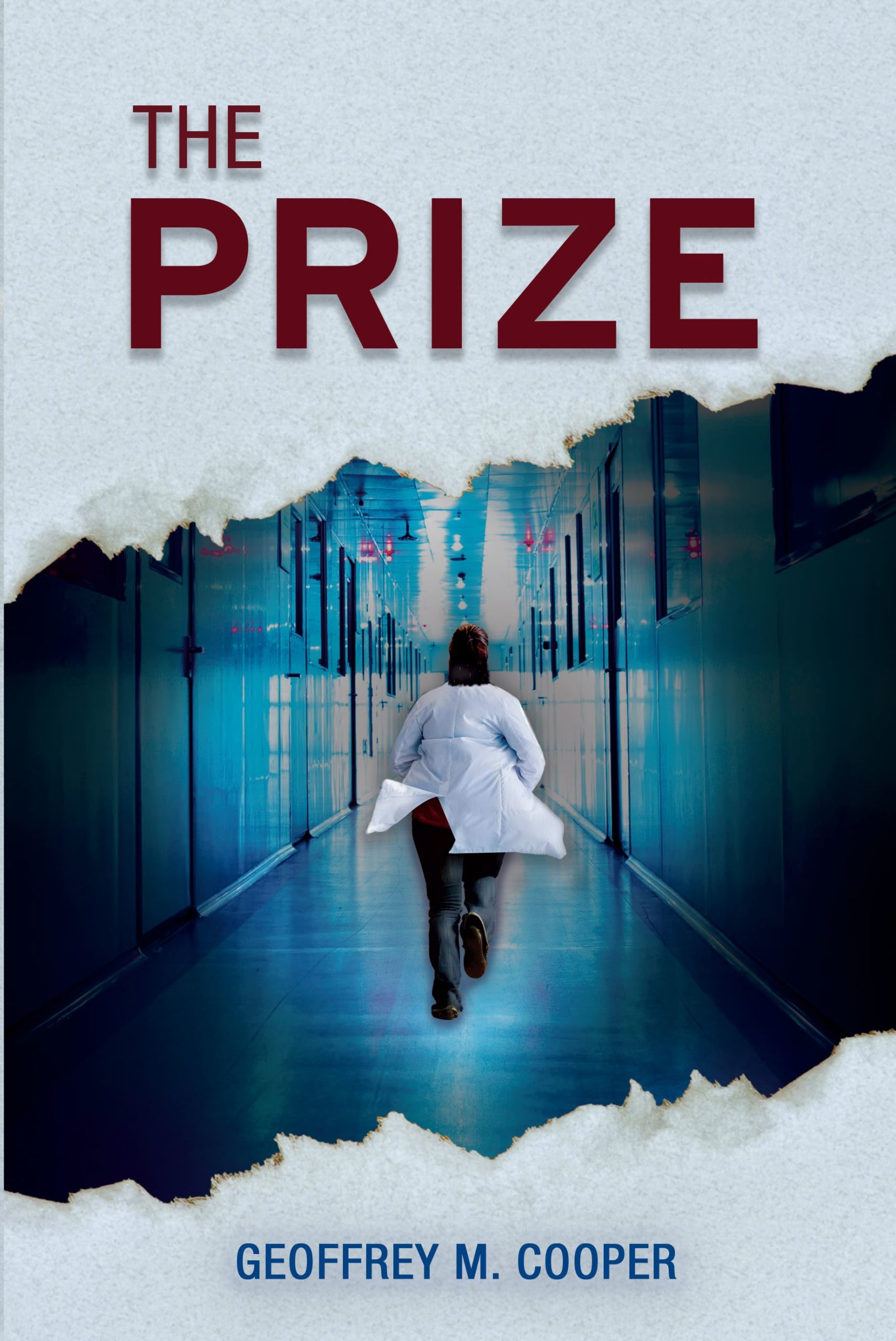
The Prize by Geoffrey M. Cooper
Book Summary
What does it take to win a Nobel Prize? Deceit, fraud, even murder? Set in the competitive world of cutting-edge medical research, The Prize is a science thriller in which jealousy over the discovery of a treatment for Alzheimer’s disease leads to fraud, betrayal and violence.
Pam Weller makes the discovery of a lifetime when she finds a drug with the potential for treating Alzheimer’s. But her success threatens the supremacy of Eric Prescott, a leading figure in Alzheimer’s research. Lusting relentlessly for the Nobel Prize, Prescott fears that Pam’s work will derail his ambitions. He seduces one of Pam’s research fellows and enlists her in a plot to brand Pam a fraud and steal her discovery. But when an investigation threatens to uncover their plot, Prescott kills his co-conspirator and fakes a suicide that places the blame squarely on Pam. Leading Pam into a world where nothing is real, except threats to her career, her freedom and even her life.
In a novel of intrigue and suspense, The Prize explores the human side of science and drug discovery, exposing the pressures and ambitions that can drive the betrayal of scientific ethics and lead to fraud in medical research.
Amazon Link – http://amzn.to/2DJmePo
Three scientists strive to find the cure for Alzheimer’s in Cooper’s (The Cell: A Molecular Approach, 2015, etc.) scientific thriller.
Forty-seven-year-old Eric Prescott is an accomplished scientist specializing in Alzheimer’s disease research at the Institute for Advanced Neuroscience in Cambridge, Massachusetts. The novel opens with a conversation between Eric and some scientists after he accepts the Lasker Award for “seminal research in elucidating the basis of Alzheimer’s disease.” Eric’s arrogance is apparent when one of the Karolinska Institute professors on the Nobel Committee, Alfred Bergner, recommends that Prescott speak to another scientist, Pamela Weller: “Prescott was steaming. Did Bergner seriously think this woman was some kind of competition?” Pam is a faculty member in the Langmere Institute for Neurological Disease at Harvard University. When her research results in what may be the key to the cure, Holly Singer, one of her postdocs, teams up with Eric to claim the breakthrough as their own, and they take extreme measures to ensure their place in history and receive the Nobel Prize. The omniscient narration makes each major character’s intentions clear: Pam wants to make a difference, Eric wants fame, and Holly wants to establish herself as a respected voice in the scientific community. One of the highlights of this book is how comfortably Cooper manages to find a balance in presenting difficult scientific topics in an easy-to-follow narrative, as when Holly explains a cell culture: “They’re cells that were triggered to start producing Alzheimer’s plaque. You can see the plaques have formed and the cells are beginning to die.” The characters do come off as a little one-dimensional, however, and the book might have benefited from additional back story, such as how Pam became so interested in Alzheimer’s research. Nonetheless, this is an engrossing read; in one particularly suspenseful moment, a character awaits the results of putting Nembutal in another’s wine.
An intense story about ruthlessness in the scientific community.
